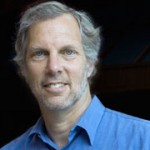
Jeannette Wicks-Lim ’05 PhD and assistant research professor at the Political Economy Research Institute, is cited in a report on the occupations most likely to gain from unionization including nursing aides, office clerks, accounting clerks and janitors. (Suite101.com, 5/30/11)
Types of Jobs that are Ideal for Unionizing
Suite101.comMost of the job growth that will occur in the United States by the year 2016 will be in low-paying occupations. Unions could improve overall job quality.Unions have historically existed to protect workers from unsafe working conditions, unfair treatment, low pay and insufficient benefits. According to AFL-CIO, one of the nation’s largest organized unions, over 36 percent of public employees are unionized compared to only 6.9 percent of private sector workers.
This is primarily due to the fact that private sector labor laws do not prohibit employers from using intimidation and harassment to prevent unionization. While educators continue to represent a large portion of unionized workers, according to a 2009 educational study written by Jeannette Wicks-Lim at the University of Massachusetts, Amherst, the following four occupations stand to gain the greatest benefit from union representation: nursing aids/personal home health care aids, general office clerks, janitors, and accounting clerks.

 Robert Pollin, UMass Amherst economics professor and co-director of the Political Economy Research Institute (PERI), and Bill Fletcher, executive editor of The Black Commentator, analyze President Obama’s State of the Union address in a a recent
Robert Pollin, UMass Amherst economics professor and co-director of the Political Economy Research Institute (PERI), and Bill Fletcher, executive editor of The Black Commentator, analyze President Obama’s State of the Union address in a a recent 


